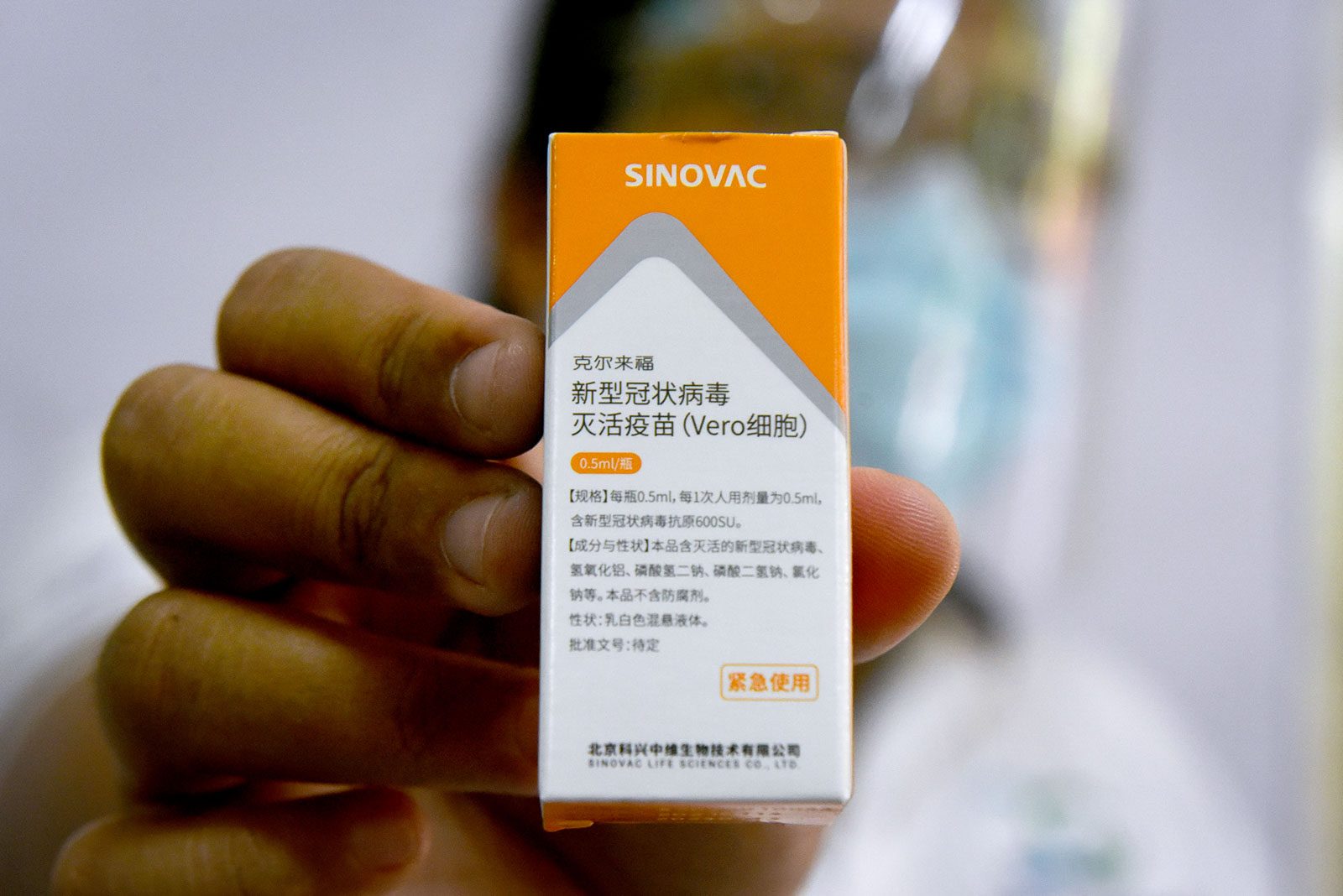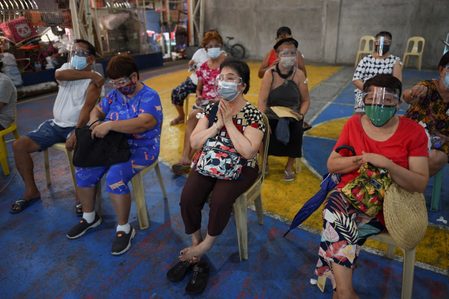SUMMARY
This is AI generated summarization, which may have errors. For context, always refer to the full article.

The Philippines’ Food and Drug Administration (FDA) on Wednesday, April 7, allowed the use of Sinovac’s COVID-19 vaccine CoronaVac on senior citizens, but stressed that “stringent evaluation” of a person’s health and risks should be done before deciding to proceed with vaccination.
“After considering the recommendation of the experts and the current situation of high COVID-19 transmission and limited available vaccines, the FDA is allowing the use of Sinovac on senior citizens,” FDA Director General Eric Domingo told Rappler in a text message.
Domingo added that the vaccination of senior citizens “should be preceded by an evaluation of the person’s health status and exposure risk to assure that benefits of vaccination outweigh risks.”
The Department of Health (DOH) will craft the guidelines, Domingo said.
On Wednesday morning, the Vaccine Expert Panel (VEP) announced in a televised briefing that it has recommended the use of CoronaVac on the elderly following the suspension of senior citizens’ vaccination due to the lack of AstraZeneca vaccine supply.
VEP head Dr Nina Gloriani cited CoronaVac clinical trials in Brazil and China that showed that elderly recipients of the vaccine only exhibited mild to moderate side effects.
Aside from the Philippines, Indonesia – which has among the highest cases of COVID-19 in Southeast Asia – also approved the use of CoronaVac on the elderly, a Reuters report said.
The use of CoronaVac in several countries had been considered after data from Phase 1 and 2 trials in China showed the vaccine could safely trigger an immune response in elderly people.
Sinovac, however, cautioned that the data on how well the shot protected people aged 60 years and above was still “limited” and that when deciding to use the vaccine, “the necessity of inoculating this product should be evaluated in consideration of the health status and exposure risk of this age group.”
Taking this into account, health officials in China recently opened up their inoculation program to those 60 years old and above but said large-scale vaccination on the group would take place once there were sufficient safety and efficacy data from clinical trials.
In a joint statement on Wednesday, the DOH and FDA said the decision to expand the use of Sinovac’s vaccine had been approved “considering the limited availability of vaccines and the growing need to protect seniors amid the increasing number of COVID-19 cases in the country.”
The agencies added that “while current efficacy data for senior citizens from Phase 3 trials is insufficient, the benefits of using the vaccine for this particular group outweigh its risks, and more scientific data on use for senior citizens may soon become available.”
The government’s coronavirus task force approved the simultaneous vaccinations of seniors, along with health workers and persons with comorbidities, as it expected more doses to become available, though its schedule of deliveries has so far been delayed.
Vaccination challenge
A year into the pandemic, the Philippines is still struggling to contain the spread of the deadly virus. For the past days, the country has been recording over 6,000 cases of COVID-19. On April 2, the country even logged 15,310 cases of the disease.
As of Wednesday, the country has 819,164 total confirmed COVID-19 infections, with 14,059 deaths and 646,404 recoveries.
Despite the availability of COVID-19 vaccines in the country, vaccine hesitancy among Filipinos remain high as 6 out of 10 Filipinos do not want to be inoculated with a COVID-19 vaccine, according to the latest Pulse Asia survey released last March, prior to the surge in cases.
Vaccine fears fanned by the Dengvaxia scare had pulled down immunization rates in the country, even for proven vaccines.
As of Wednesday, the DOH said that of the total available 2.5 million vaccine doses, it had distributed 1,936,600 (77%) doses throughout the country.
“Of the distributed doses, a total of 922,898 doses have been administered to healthcare workers, senior citizens, and persons with comorbidities, affording added protection to almost a million at-risk and vulnerable Filipinos,” the DOH said. – with reports from Sofia Tomacruz and Reuters/Rappler.com
Add a comment
How does this make you feel?

There are no comments yet. Add your comment to start the conversation.